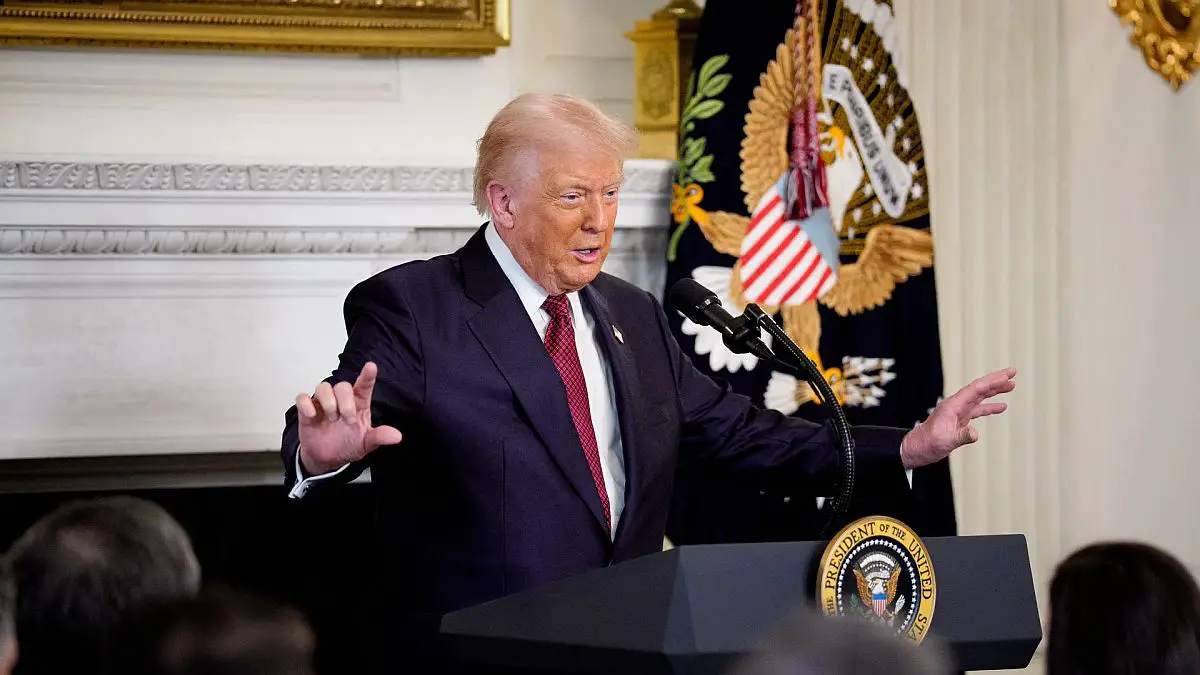The Senate filibuster was designed to slow things down and force compromise. In today’s Senate, it functions more like a tool for the minority party to take the country hostage. Nearly every major bill dies unless it can clear sixty votes, and both parties now use the filibuster as a weapon to block the other side.
With the government shutdown continuing, President Trump is pushing Senate Republicans to consider something dramatic. He wants them to eliminate the filibuster so the Senate can pass a bill with a simple majority and reopen the government. Trump’s point is simple. If Democrats were willing to end the filibuster when it suited them, then Republicans should not be afraid to use the same power while they hold the Senate.
It’s foolish to think Democrats won’t nuke the filibuster the next time they’re in power. The question is whether Republicans should do it first.
Democrats Already Tried To Kill It
This is not a hypothetical discussion. During the Biden administration, Democrats pushed hard to scrap the filibuster so they could pass voting reforms and spending bills without Republican support. The majority of Democratic senators supported ending the rule. Only two members of their own party stopped them. Kyrsten Sinema and Joe Manchin refused to go along, which is the only reason the filibuster survived.
As Fox News columnist David Marcus wrote, “The last time this issue came up there were only two Democrat senators who opposed the idea, Kyrsten Sinema and Joe Manchin.” He pointed out that Democrats were fully prepared to pull the trigger.
In other words, Democrats are not defenders of the filibuster. They were ready to nuke it. They simply lacked the final two votes. They started this fight, and now Republicans might be ready to finish it.
Trump Is Saying: Do It
Trump is urging Republicans to act despite hesitancy within the ranks. Marcus describes this option as “nuking the filibuster,” and says it would give Republicans “at least one year to pass anything they want.” He notes that issues like border security, energy production, and tax relief would move immediately.
This is the heart of Trump’s case. The shutdown could end overnight if Republicans use the power they already have. There would be no gridlock, no sixty-vote threshold, and no excuse for inaction.
The Double-Edged Sword
Eliminating the filibuster does not only change the present. It changes the future, and probably makes Senate contests far more important and consequential.
The filibuster protects the minority party. If Republicans remove it and then lose power later, Democrats could pass sweeping legislation with fifty votes and a vice president tie-breaker. Anything could move. The Supreme Court could be expanded. Entire policy visions could be forced into law with no Republican input. It would be like turning the country over to the California legislature, only to turn around a few years later and hand it back to Texas.
But there is a key reality. Democrats have already shown they would not hesitate to eliminate the rule the moment it benefits them. Marcus even asks a blunt question: “What if Democrats are likely to blow up the filibuster eventually, regardless of what the GOP does?”
Republicans would not be destroying something Democrats plan to preserve. They would be acting before the other side gets the chance.
The Senate Is Not a Compromise Chamber Anymore
Supporters of the filibuster argue that it protects bipartisanship. That may have been true in the past, but the Senate does not function that way now. As Marcus puts it, the sixty-vote threshold worked when senators crossed party lines. Today, the parties vote in lockstep. Compromise is rare. There is no “cooling saucer” effect any longer that seeks compromise. The Senate is a lethargic body where good policy goes to die, and the only unity is about sending money overseas.
The filibuster no longer encourages debate. It prevents debate. The Senate has become a place where nothing moves unless it is already pre-approved by both sides.
A Changing Political Map
There is another strategic angle. The Senate map in the upcoming cycles favors Republicans. Democrats must defend seats in several states that lean Republican in 2026 and 2028. Many analysts expect the GOP to hold or expand its majority.
If Republicans are likely to control the chamber for several years, removing the filibuster would allow them to govern rather than simply survive. In fact, it may even provide the next 202 Republican presidential nominee some fuel to continue President Trump’s agenda with a more decisive legislative body.
On the other hand, as noted above, Senate races would become more important, and contests that look less competitive could become ground zero for what is tantamount to total federal control.
A Decision Point
Everything comes back to one question. Should Republicans defend a Senate rule that no longer works, simply because it used to matter? Or should they accept the reality that both parties have already shown willingness to eliminate it? Once the pin is pulled, there is no escaping the grenade.
Marcus sums up the dilemma with a simple metaphor. The filibuster has become “a broken gate at a parking garage where nothing can pass.”
The Senate is stuck. Trump wants to unstick it. In many ways, his instincts are superior to the average Republican Senator. Trump has proven he can provide paths to victory and leadership for a party that usually lacks both. He’s calling for changes now because he sees what Democrats will do in the future.
Whether Republicans move forward or not, the debate over the filibuster exposes a truth about Washington.
The rule no longer protects principle. It protects paralysis.
